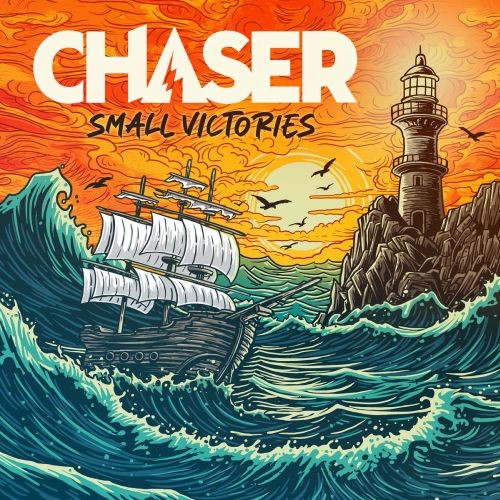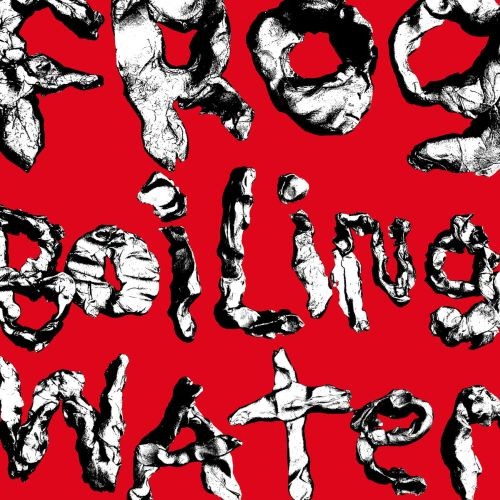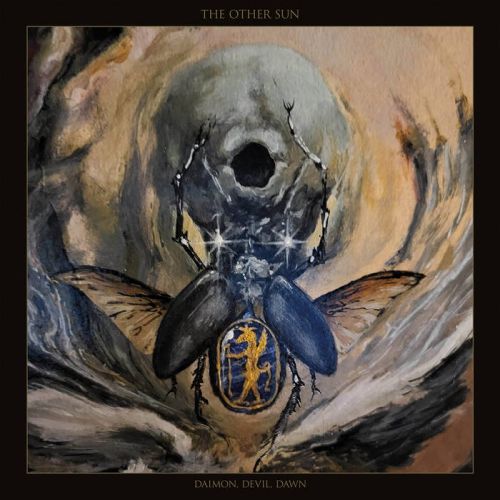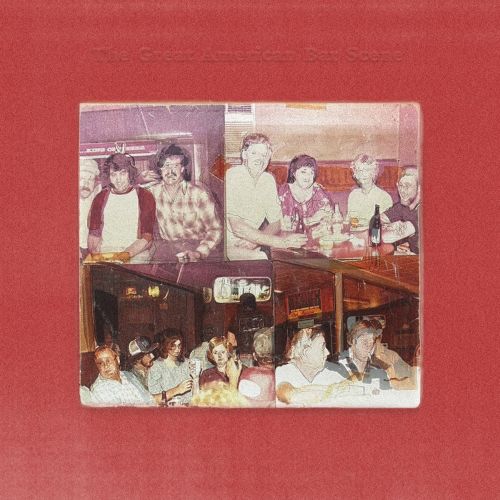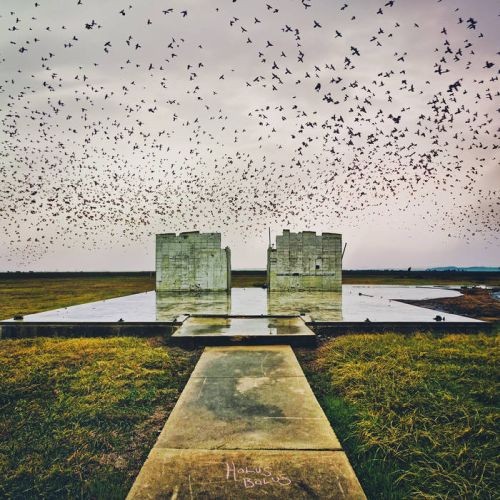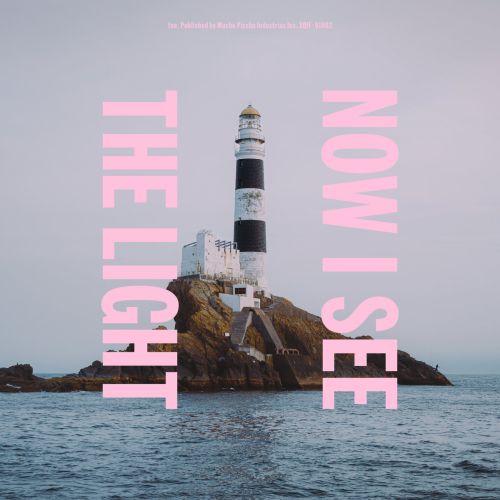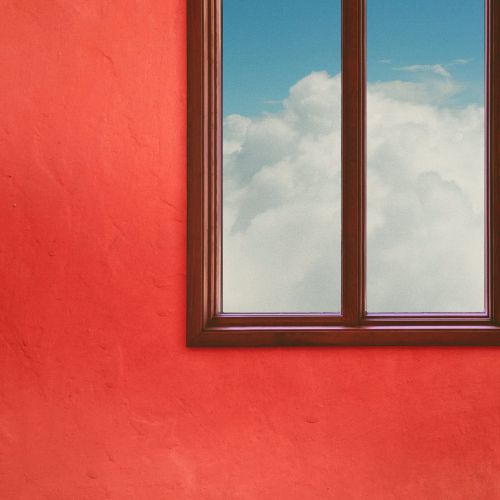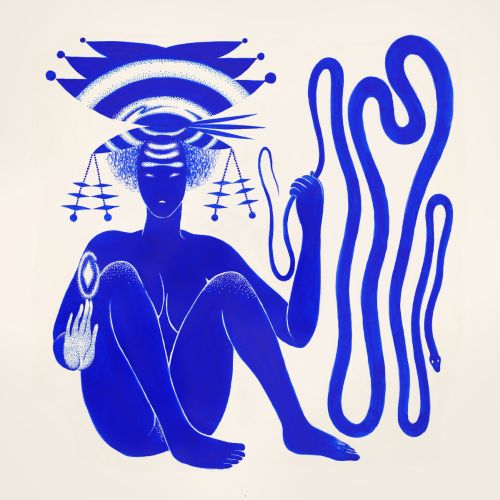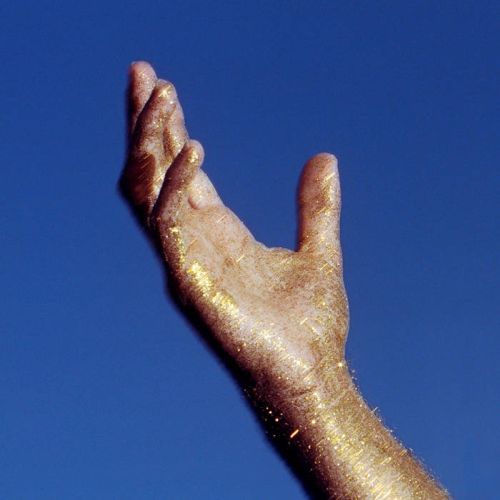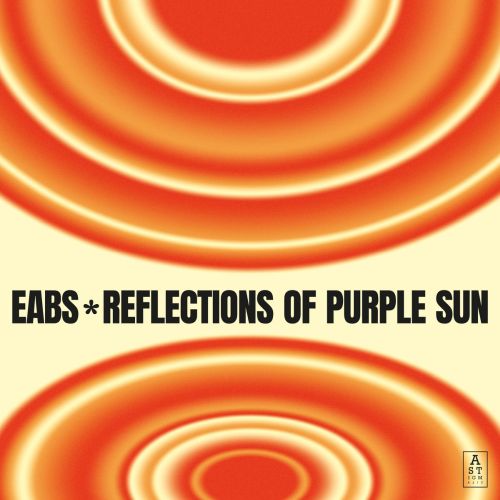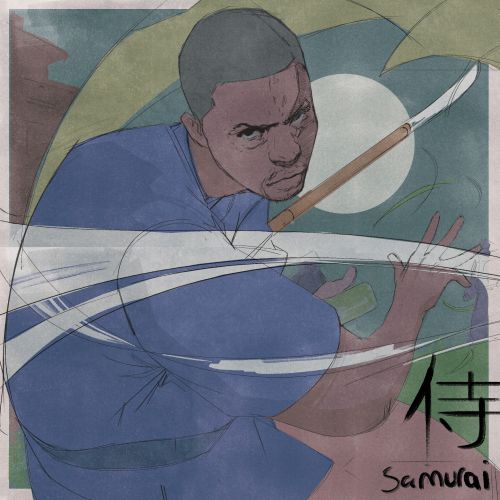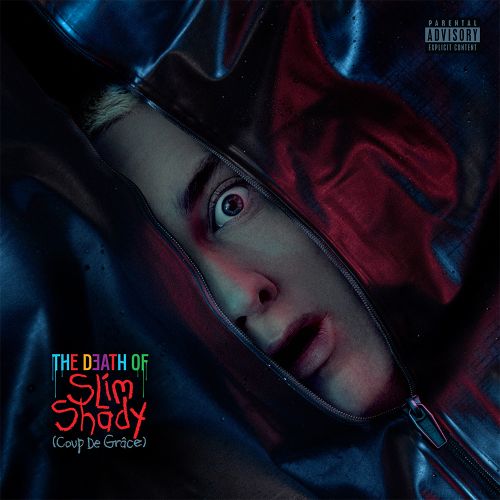Wait A Minute! This Isn't Metal! - July 2024

| Written by: | RaduP, musclassia, Abattoir |
| Published: | August 11, 2024 |
Wait A Minute! This Isn't Metal! - July 2024
Metal Storm's outlet for nonmetal album reviews
The place where we'll talk about music without growls or blast beats
unless they still have those but still aren't metal
unless they still have those but still aren't metal
We here at Metal Storm pride ourselves on our thousands of metal reviews and interviews and article; metal is our collective soul and passion, which is why we bother with this junk. That being said, we'd be lying if we stuck to our trve-kvlt guns and claimed that metal is the only thing we ever listen to. Whether we want to admit it or not, we do check out some other stuff from time to time; some of us are more poptimistic than others, but there's a whole world out there aside from Satan-worshiping black metal and dragon-slaying power metal. We do already feature some nonmetal artists on our website and have a few reviews to back them up, but we prefer to limit that aspect of the site to those artists who have been a strong influence on the metal scene or who are in some way connected to it. This article series is the place for those artists who don't matter to metal in the slightest but still warrant some conversation - after all, good music, is good music, and we all know metal isn't the only thing on this planet for any of us.
Down below, you might find some obscure Bandcamp bedroom projects or some Billboard-topping superstar; as long as it ain't metal and the album itself isn't a best-of compilation, it fits. Obviously, we're certain that not everything will be for everybody (you guys can be viciously territorial even when metal is the only thing on the menu, and we're all supposed to like the same things), but we do hope you find at least one thing that you can enjoy, instead of just pointing and screaming in horror "Not metal!" as if that would be an insult.
Here are our previous features:
June 2024
May 2024
April 2024
And now to the music...
Hailing from the Southern California, the “home” of many (melodic/skate) punk rock groups, are Chaser, delivering their new product titled Small Victories. Chaser might not be particularly known around the world, but the four-piece have been around for almost 25 years and produced a series of LPs throughout that period. Although I’ve been exploring this scene from time to time, it was not long ago that I came across their music by finding their previous record, Dreamers, which got my instant attention. That automatically led to checking out their latest new full-length effort, Small Victories, produced by Cameron Webb, who worked with many “big names” from this scene, such as Social Distortion, NOFX, and Pennywise. To the latter, Chaser are often connected by drawing similarities between their respective music.
Consisting of 13 quintessential melodic punk rock songs, Small Victories is full of energy and high-tempo action throughout the entire runtime, with rare breakdowns and restraining of the pace, as well as regular sing-along choruses that give an additional positive vibe. Commonly, there is an emphasis on the context of the lyrics, uncovering themes of a strongly entrenched PMA (positive mental attitude) to confront all the life struggles we come across. At the end of the day, all these significant characteristics encapsulate the driving force of their music as an art of expression. Maybe unduly overlooked, Chaser and their philosophy is not that complicated in regards of music creation and execution; alongside a strong production, that’s enough that get you hyped up and satisfied. A big victory.
Bandcamp | Apple Music | Spotify
by Abattoir
RaduP's pick
It's been quite a while since we last heard from DIIV, with their latest, Deceiver, having came out in 2019. It's not really surprising, given that the band also described the four years long making of this album as quite challenging and nearly ended in the band breaking up as they tried to shift their songwriting dynamics towards something more collective and sonically ambitious. With a title inspired by the Daniel Quinn story about the boiling frog, and the gradual changes that late capitalist society get to be accepted as normal because they're so gradual, so it's no wonder that Frog In Boiling Water is DIIV's most harrowing record so far.
Shoegaze has always been somewhat hazy and melancholic, but there are few albums of its type that sound as dark and downtrodden the way Frog In Boiling Water does. Some of it is a certain slowcore influence, but it's like the lethargy of slowcore but not its slow pace, with the somewhat more animated mid paces creating a slight sense of urgency but not enough to really feel urgent, quite like the anecdote that the album is based on. More focused on being a cohesive mood creator and statement deliverer at the cost of having fewer standout moments, Frog In Boiling Water is quite the change of pace for DIIV.
Bandcamp | Apple Music | Spotify
by RaduP
Another project featured this month (alongside The Radicant) with a true audiovisual focus is Tenebrae Annex, Jason Hembree’s one-man industrial/ambient electronic project. As may be expected from a project with that description, Tenebrae Annex is clearly influenced by Nine Inch Nails, along with film score rockers Goblin and directors including Stan Brakhage, John Carpenter, and Davids Lynch and Cronenburg. Unfortunately, I must admit that I’m not sufficiently invested in Conditioning to cough up 15 dollars for the DVD, so I can only judge it on its musical merits.
Given its soundtrack nature, most of the tracks on the album are on the shorter end, although there’s a handful of longer ones near the record’s end. The early compositions encompass clunking industrial music, eerie 80s horror-style synths, disquieting noise and harshness (particularly on the menacing “090620XX”), and also more spacious dark ambient (such as can be heard on “Devourer Of Memories”). After a rather bleak and eerie sequence of tracks (although more straightforward industrial in the form of “Recovered Lab Tape” does help temper this mood slightly), Hembree branches out into the aforementioned longer songs, although “Pink Wave Rust Symphony” and “Return” are mainly just a more long-form dalliance with eerie dark ambience. The 9-minute “Final Transmission” represents what is likely a conclusion to the accompanying video’s story, heavily featuring ominous spoken word. Overall, Conditioning is an unnerving album, and one that presumably accompanies a rather grisly film.
Bandcamp
by musclassia
The term ‘occult rock’ is hardly a novel one, considering the style has origins in the 60s and 70s, but it would be interesting to learn how many purveyors of such a sound have explored esoteric religious practices to the extent of Salomonic Magical Arts author Fredrik Eytzinger. Away from authorship endeavours, Eytzinger explores musical interests as the bandleader of The Other Sun, whose debut album Daimon, Devil, Dawn draws upon rock influences from acts such as Ghost, but which also derives just as much, if not more, from Western scores, gothic country and surf rock.
There are moments on the album that drift somewhat towards hard rock heaviness, and the opening track “Shaking Ground” has some legitimate weight to its jangling riffing, although it does also meander through trippy, psychedelic stretches in between. Other songs with genuine weight to them include the rather ominous and brooding “Conjuring Other” and the gradually escalating “A New Dawn”, which ends in full-on shredding fashion. In between, however, The Other Sun dip toes into the aforementioned style; “Stalking The Stalker” and “Horizon Between The Eyes” incorporate country & western elements in very enjoyable style, while surf rock seeps into the guitarwork of “Black As Gold”. The Swedes find a satisfying balance between the darkness of the occult and the irresistible coolness of the Western twang.
Bandcamp | Apple Music | Spotify
by musclassia
It does feel a bit unfitting for me to review this album considering that I never drunk in an American bar (and I also don't like the American beer I've tasted, the whiskeys were alright), but I think there's a lot about The Great American Bar Scene that doesn't need any context within said bar scene, but rather within Zach Bryan's career and the country scene generally. There's been thankfully a revival of more heartfelt country music / americana, or at least I've become more aware of it outside of the general bro country that polluted the genre, and Zach Bryan has thankfully received quite a lot of attention, first having a huge two hour long album two years ago with American Heartbreak, and then deciding to have a self-titled album at that point in his career last year. Take a guess which was more commercially successful.
When I covered the latter, I was mostly taken aback by Bryan's emotional performance and lyricism, and that album relied a lot on more subdued instrumentals. The Great American Bar Scene does take things in a slightly more lively direction instrumentally, with the rock in country rock often taking more of a heartland rock vibe, something cemented by the Bruce Springsteen feature on one of the tracks. The production is dynamic and deep enough to really sell both the livelier and the more subdued moments, and to push forward Bryan's warm vocal performance. Another hour of music within a single year might be a bit too much too soon, but with music this heartstring-pulling, it works.
Apple Music | Spotify
by RaduP
musclassia's pick
“Lord Buffalo is heavy in the way that ghosts are heavy... in the way that billowing dust is heavy.” The band’s profile opens with one of my favourite descriptions I’ve read of a band, and it’s apt; much like other acts namedropped within the subsequent blurb, including Wovenhand, Earth and Chelsea Wolfe, the ‘heaviness’ of Holus Bolus is of an emotive kind rather than a pure dynamic one. The group’s third full-length album has roots in dark folk and Americana, although its particular renditions can span from High Plains-tinged alternative rock through to dronier vistas.
The former is demonstrated by the opening title track, a laidback, slick cut with steady percussion and smooth, twanging guitarwork. The following song, “Slow Drug”, offers a relatively stark contrast, as while there is some loose, muted percussion, the track’s soundscape frequently feels structureless, shaped by meandering guitar distortion and violin. Holus Bolus is perhaps at its most compelling when delving into the kind of dark Western folk of Wovenhand (or, perhaps more pertinently for a metal side, the non-metallic portions of Wayfarer’s latest effort) on a song such as “Passing Joy”, but the almost cinematic flair to the lengthy drone-influenced closer “Rowing In Eden” is also very impressive.
Bandcamp | Apple Music | Spotify
by musclassia
I haven't even been aware of Toe's absence, but I reckon there are plenty of bands that you find out when you explore a genre and you somehow never think of them as bands that still exist in the present until you see news of them touring of releasing new music. In the case of Toe, my story with them started when I saw The Book About My Idle Plot on a Vague Anxiety in a chart about getting into post-rock, and most of my connection to them has been related to seeing them as a band that was important to that brand of 2000s post-rock, the one with a slight math rock and emo and indie rock leaning, and even if I listened to their other albums as well, they felt "historical".
Well, there's a new Toe album out, and now I finally feel like they're a current band because they haven't released anything since 2015's Hear You, their most lukewarm record, and I have gotten into them only in the meantime. Now I See the Light is a quiet and comforting reintroduction of their sound, a bit more focused on acoustic guitars than their older material, and a lot of it is the kind of post-rock that is more moody and focused on building interesting rhythms and soundscapes than on being immediately exciting. It's probably not gonna be a future classic the way The Book was, but it's nice to finally see Toe being alive right now.
Bandcamp | Apple Music | Spotify
by RaduP
Khruangbin might be the smoothest band in existence. Perhaps that's an exaggeration, but listening to them can sometimes feel like that. That's a double edged sword, of course, because they're so smooth and easy listening they become inoffensive, but they're also so effortlessly cool while at it that it's hard to blame them for it. I know a lot of music can be subdued, but stuff like A La Sala take psychedelic rock and neo-psychedelia and mellow it out to make it as chill of a vibe as possible that it becomes distilled vibe that's perfect background listening that never requires too much of your attention.
Also, I've just seen Khruangbin live and that effortlessly cool part is something that really translated into their live show, with all three members completely in control of their sound, which only further cemented my "smoothest band in existence" assessment. Also giving A La Sala a listen afterwards made me aware that I recognized most of these songs from their live performance, showing just how easy it is for them to create something memorable. The only problem was, both in the live performance and in the music is that it doesn't really reward the active listening and once you got their deal, then there's not much more to discover but to just enjoy the vibe.
Bandcamp | Apple Music | Spotify
by RaduP
You know how the most important element of soul music is the vocal performance, and how the instrumental is usually either orchestral or maybe a bit funky. Enter Hiatus Kaiyote, who instead take an almost proggy direction with their soul, complete with some alternative R&B, psychedelic rock, jazz fusion, and even more funk. The last time I covered them, re-reading my writeup for Mood Valiant, I used completely different genre tags, like nu jazz and math rock, which isn't entirely wrong, so that should give you an idea of the eccentricity at play with Hiatus Kaiyote.
While the thing that sets Hiatus Kaiyote apart the most is how intricate their music is in a genre where that's not always the case, with all the grooves and syncopation you could want, what I really like Love Heart Cheat Code is the emotional vibe that it is going for, a sort of very lush warm and playful take on introspection, not without its surreal psychedelic weirdness (see the Jefferson Airplane cover that closes the album) and quirky interludes (see the song about a very very long cat), and in between there's music that's occasionally accessible, occasionally challenging, but always groovy.
Bandcamp | Apple Music | Spotify
by RaduP
Although the initial reasons for their entering a hiatus (pandemic-induced struggles) made complete on Anathema’s part, the seemingly severe condition of members that was subsequently brought to light may explain why there’s been relative radio silence in terms of new projects in the wake of said hiatus. Nearly 4 years after the hiatus was first announced, Vincent Cavanaugh has emerged with a new project named The Radicant, whose first EP We Ascend is released courtesy of Kscope. The Optimist inspired a passion in Cavanaugh for concocting audio collaborations with visual artists, and We Ascend represents the next step in this journey.
The record features one such contemporary artist, Sarah Derat, as a vocalist on two songs, as well as a feature from ex-Anathema bandmate Daniel Cardoso on drums, appearing on the track “Zero Blue (NSS Mix)”. This song would perhaps be most easily categorized as ‘electronic rock’, as Cardoso’s percussion provides a rock base to a song otherwise built around electronics and ambience. Overall, We Ascend has quite a dreamy ambient focus, and the title track demonstrates this in particular, comprised instrumentally almost entirely of bright, dramatic synth layers, upon which Cavanaugh’s signature dreamy voice appears. “Anchor” is more subdued, aside for a brief drum & bass flourish in its closing stages, and the remainder of the EP represents a further descent into ambient exploration. We Ascend does arguably sound as if it is missing an element, which it be visual accompaniment or otherwise, before it can take its final form, but it’s an intriguing first step in a post-Anathema world for Cavanaugh.
Bandcamp | Apple Music | Spotify
by musclassia
Nobody pretends that jazz is not an international phenomenon, and finding jazz from all places shouldn't be a surprise, but somehow it seems that Poland isn't among the first countries on anyone's lips when it comes to jazz, despite Krzysztof Komeda being one of the most respected names in the genre. Poland's EABS also kickstarted their career with a tribute to Komeda, and then another culturally indebted album called Slavic Spirits back in 2019. The last time I talked about them though was last year when they had just released a collaboration with Pakistani's Jaubi, called In Search of a Better Tomorrow, creating one of jazz' best multicultural exchanges in recent memory.
Now Reflections Of Purple Sun takes a return-to-the-roots approach after the breakthrough that was In Search of a Better Tomorrow by not having any guest performers and by returning to Polish jazz, this time specifically reinterpreting Tomasz Stańko's 1973 masterpiece Purple Sun, with Reflections Of Purple Sun being recorded almost exactly 50 years after the original in his apartment and using some of his instruments. It's interesting to see how EABS modernize the original, both as a tribute and as a way to showcase towards newer audiences an album that's very overlooked, but it's also easy to listen to Reflections Of Purple Sun without knowing anything about the original.
Bandcamp | Apple Music | Spotify
by RaduP
RaduP's pick
For a guy that is still mostly known for the pop rap of Food & Liquor, as conscious and high-quality as that album was, a lot of the most celebrated material came in the form of the jazzier and more abstract starting with 2015's Tetsuo & Youth, continuing up to the one Lupe Fiasco album I did cover in 2020's Drill Music in Zion, but even those seemed like very good albums that didn't leave as strong of an impression on me, and I expected Samurai to be the same, and while Samurai is similarly meta in the way that Drill Music in Zion was, there's something that feels more impactful.
For one, the point of inspiration for this album lies in an imagining of Amy Winehouse becoming a battle rapper, crazy as that sounds, and somehow that is best transposed as an abstract hip-hop album, with some Nujabes-sounding jazz rap beats. It feels very focused at slightly over thirty minutes of runtime, wasting no time on fillers, and weaving lyricism that's worthy of the "lyrical samurai" quote that served as inspiration for the album. The blend of lyrical gymnastics, great energy from the jazzy production, and the slim runtime probably explain why Samurai ended up having a bigger impact for me out of Lupe's recent stuff.
Apple Music | Spotify
by RaduP
Most of the albums we cover here are albums we find worth our users' time and that we want to recommend. But just like our main page isn't always relegated to purely the positive of reviews, so does this feature sometimes feature the kind of album that is so interesting without necessarily being good that's just too intriguing to miss. I have missed Eminem albums before, but there's something very specific about this one in that it feels like the most consequential of the Eminem albums of the past decade. And also, in a way, also the best of the past decade, though that's not such a high standard. But the main reason why I decided to cover it is that the album is dated on arrival, and it will only get more dated as time goes on.
As the name suggests, this is a concept album. Slim Shady is one of the characters that Eminem employed in his music, and the entire concept of the album is Shady's crude and controversial approach existing in the current "cancel culture" landscape, Eminem coming to terms with how and why he used the character, and ultimately "killing" him. Not too bad of a concept in itself, and the humor in the character being used while keeping things tongue-in-cheek does have some moments, but there's maybe one too many "old man yells at gen Z" to not cringe at, the album goes on for much longer after the character's death for no reason, and the album's strongest moments are cluttered in a lot of mediocre stuff, that still somehow lands this album as being less mediocre than the previous three, only by courtesy of the few strong moments and the modicum of effort put in the concept.
Apple Music | Spotify
by RaduP
And that was it. You've made it through still alive. Congrats. See ya next month. Here's a Spotify playlist we compiled out of stuff featured here:
Comments
Comments: 1
Visited by: 24 users
| The Galactician |
Hits total: 2130 | This month: 67



